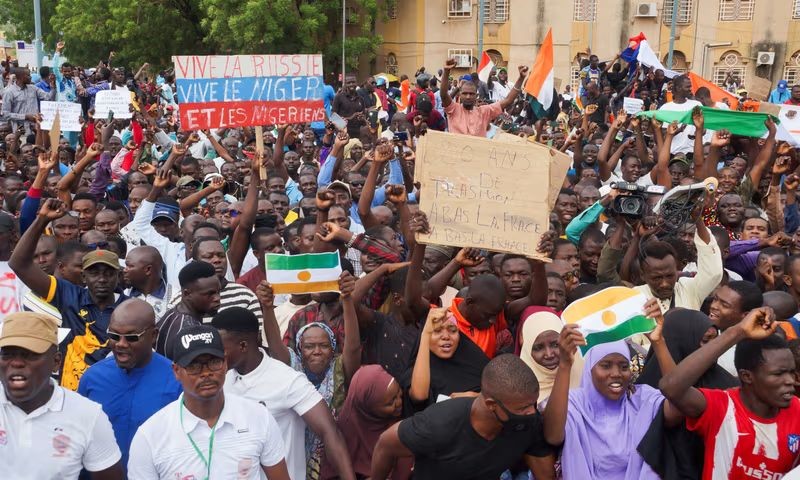Political instability continues to cast a long shadow over Africa’s governance landscape, with Niger standing as a stark example of how military coups can derail hard-fought strides toward democracy and security. The detention of President Mohamed Bazoum by his own presidential guard in July 2023 marked a dramatic turn for Niger and reflected broader patterns of governance crises spreading through the continent’s Sahel region and beyond.
The Nigerien Coup: Origins and Impact
President Mohamed Bazoum was democratically elected and seen as a beacon of hope for progress and stability in a country plagued by chronic insecurity. However, in late July 2023, Bazoum was abruptly detained by the presidential guard within the palace in Niamey—an event described as an attempted coup by regional and international observers. The move was led by Brigadier General Abdourahamane Tiani (also spelled Tchiani), the commander of the guard, who, supported by other military factions, broadcast the ousting on national television. The arrest was soon followed by the announcement of a transition to military rule, with Bazoum and his family kept incommunicado for two years and facing persistent threats of prosecution.
A familiar justification surfaced: Niger’s coup leaders cited worsening insecurity, economic hardship, and alleged interference from Western powers—especially former colonial ruler France—as rationales for their actions. While some sections of the public rallied behind the junta in the short term, well-founded doubts exist about tangible progress under military rule, with human rights advocates pointing to arbitrary detentions, repression of dissent, and the sidelining of political opposition.
Coups on the Rise: The Sahel and Beyond
Niger’s crisis is not an isolated event. The frequency of coups in Africa has surged in the 2020s. Analysts count at least 13 attempted coups from 2021 to 2023—eight of them successful—in countries such as Mali, Guinea, Sudan, Burkina Faso, Niger itself, and Gabon. The military, where successful, has shown little urgency to return power to civilian hands, often holding contested elections to provide a semblance of legitimacy or extending transition periods significantly.
Common patterns underpin these upheavals: pervasive insecurity caused by jihadist insurgencies, the failure of governments to deliver basic services, and mounting frustrations with corruption and external meddling. Such problems are acute in the Sahel, where porous borders, climatic shocks, and weak institutions fuel cycles of violence and state fragility, compounding humanitarian crises and displacement for millions.
Regional and International Fallout
The ripple effects of Niger’s military coup have stretched beyond its borders. ECOWAS—the Economic Community of West African States—initially imposed sanctions and threatened the use of force to restore civilian rule but eventually lifted economic penalties. In early 2024, Niger, alongside Mali and Burkina Faso (also ruled by juntas), withdrew from ECOWAS altogether, slashing avenues for regional accountability and limiting citizens’ access to justice through the organization’s courts.
This fragmentation has deepened rifts between military-led regimes and the bloc advocating for democracy, raising fears of further instability in West Africa—a region now nicknamed “the coup belt.”
Niger’s Junta: Path to Democracy or Entrenched Autocracy?
Despite initial promises, Niger’s ruling junta has shown scant willingness to relinquish control. A recent National Dialogue in February 2025, presented as a step toward democratic transition, proposed a minimum five-year transition period, dissolving political parties, and granting amnesty to coup leaders—with the junta leader promoted further in rank. Opposition groups and civil society largely boycotted these talks, expressing serious doubts about the sincerity of the junta’s intentions. Moreover, the arbitrary detention and prosecution of Bazoum and other political figures continue to elicit international condemnation and erosion of trust in state institutions.
Broader Implications for Africa’s Governance and Security
The coup in Niger, and others like it, highlight the enduring obstacles to sustained democratic governance and human security in African regions facing persistent threats from both inside and outside the state. Military takeovers, often justified as responses to national emergencies, tend to exacerbate violence, undermine civil liberties, and stall development. They also risk emboldening military actors elsewhere, fueling the cycle of coups and upsetting fragile regional stabilizations.
For the international community and African civil society, the Niger crisis underlines the need for consistent support for accountable governance, vibrant political opposition, and dialogues that genuinely include all stakeholders—not just military elites.
Ultimately, Niger’s ongoing political turmoil serves as both a cautionary tale and a call for renewed efforts to address the drivers of instability—so that democracy and security can find firm footing amid Africa’s turbulent and hopeful landscape.

